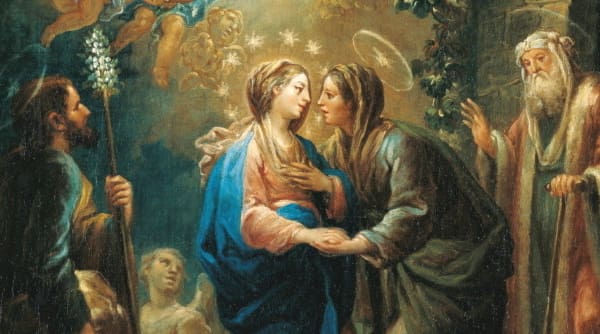IV SUNDAY OF ADVENT - Hebrews 10:5-10
In the gospel of John, in the dialogue with Nicodemus, Jesus told him: “For God so loved the world, that he gave his only Son, that whoever believes in him should not perish but have eternal life.” (Jn 3:16). The Father sent the Son to come and reconcile us with Him. However, in the letter to the Hebrews, we are told to look at the Son’s incarnation from a different perspective. In the passage, which is read on this last Sunday of Advent, we are told that the initiative came from the Son himself. The sacrifices of old did not purge us of our sins and did not bring about reconciliation with God.
In some of the prophets, God had already shown his displeasure with the sacrifices:
“What to me is the multitude of your sacrifices?
says the Lord;
I have had enough of burnt offerings of rams
and the fat of well-fed beasts;
I do not delight in the blood of bulls,
or of lambs, or of goats.” (Is 1:11)
In most cases, the sacrifices represented more an attempt at manipulating God than an effort to please Him and do his will.
The letter to the Hebrews presents Jesus making the words of the psalmist his own words:
“In sacrifice and offering you have not delighted,
but you have given me an open ear.
Burnt offering and sin offering
you have not required.
Then I said, “Behold, I have come;
in the scroll of the book it is written of me:
I delight to do your will, O my God;
your law is within my heart.” (Ps 40:6-8)
The Son presented himself before the Father with a plan and a request: he is ready to come into the world and live among people to offer himself as a true sacrifice, pleasing to the Father and worthy of his glory and majesty. He comes to do the Father’s will and that is the sacrifice acceptable to God, the only one that brings about the forgiveness of sin, thus reconciling us with God.
Jesus’ coming into the world is an act of love and his obedience to the Father comes from the same act of love, That is the mystery which we celebrate at Christmas:
“And the Word became flesh and dwelt among us, and we have seen his glory, glory as of the only Son from the Father, full of grace and truth.” (Jn 1:14).
The gospel presents the unfolding of this mystery through the actions and the words of Mary and Elisabeth. Having received the message of the Angel about God’s will for her, without delay, Mary goes and takes the message to her relative, Elisabeth. And both of them, guided by the Holy Spirit, can recognise God’s saving plan, accepting their role in that plan. Mary is proclaimed blessed of all women because she believed and put herself at the service of God. And that is the way to blessedness and salvation.

No comments:
Post a Comment